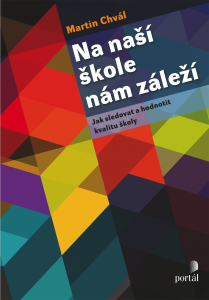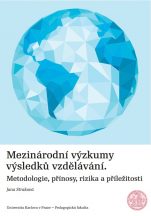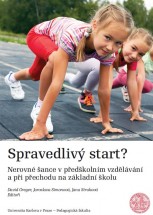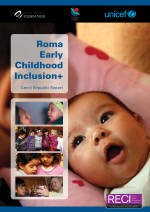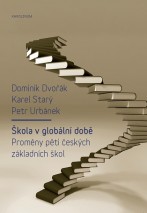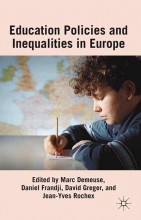School education in Russian Federation
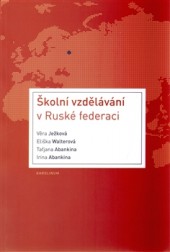 Ježková, V., Walterová, E., & Abankina, T. (2013). Školní vzdělávání v Ruské federaci [School education in Russian Federation]. Praha: Karolinum.
Ježková, V., Walterová, E., & Abankina, T. (2013). Školní vzdělávání v Ruské federaci [School education in Russian Federation]. Praha: Karolinum.
Dramatic political, socio-economic, and cultural transformations of Russia in recent decades are often compared to the reforms of Peter the Great. The ongoing reform of education, which is part of the changes, attracts international attention. There have been voices within the Czech pedagogical public, growing in intensity in the past few years, pointing out the lack of information on the development of education in Russia after the collapse of the Soviet Union, on the transformation of the educational system, and on the problems solved by politicians, experts, as well as school practice in the multi-ethnic and multi-national state. These problems may be of interest not only to the witnesses of the era of Soviet pedagogy and intensive work and personal contacts with its representatives, but also to the younger generation of teachers and researchers.
The aim of the publication is to draw attention to education in the Russian Federation, providing the Czech educational community, professionals, and the general public with up-to-date information, as well as documenting, from a critical-analytical perspective, the development, current situation, and trends in Russian schooling.
The presented analytical-comparative study forms another contribution in the editorial series of studies “Schooling Abroad”, prepared within the project Research Centre on Schooling (2006–2011) of the Ministry of Education, Youth and Sports of the Czech Republic. In 2008, a study on schooling in Germany was published, followed by a study on Great Britain in 2009 and a study on Sweden in 2011.
The study maintains the methodological approach used in previous publications, i.e. a problem-oriented concept (focus on the main problem areas of schooling) and two views of the presented issue: a view from the “outside”, provided by Czech authors, and a view from the “inside”, mediated by Russian authors.
The study was written primarily using current Russian literature, including in particular the official educational policy documents related to individual studied aspects of schooling, articles in professional literature and newspapers, and experience of studying in an authentic environment. Based on available data on schooling in Russia, the study also focuses on a comparison with the situation in OECD countries. Of particular value is the comparative data presented in the chapter written by Russian authors.
The presented analytical-comparative study has a structure similar to the previous studies mentioned above. The first chapter places countries displaying changes in schooling into a broader context. The second chapter, devoted to educational policy, focuses on the codification of the new concept of education and the development of legislation since the 1990s. The third chapter assesses the current educational system of Russia, describing its diversified structure and essential dimensions in which fundamental changes occurred. The fourth chapter forms a special unit, dealing with the development of progressive trends and experimental potential, which became one of the pillars of the reform, and the creation of education standards the implementation of which has entered into the implementation phase. The fifth chapter focuses on the curriculum. It describes federal educational standards for individual education grades, as well as the theoretical concept of the design of education standards; furthermore, it presents the structure of the model educational programmes. It also briefly deals with the current issue of the moral education of children and youth. The sixth chapter describes the evaluation system and problems associated with the introduction of new (for the Russian environment) evaluation forms and tools; attention is particularly paid to the upper secondary school leaving examination. Specific aspects of the multi-national Russian state and its multi-language society, which are characteristic of the Russian Federation and which have implications for educational policy and practice, are covered in chapters seven and eight. The presentation includes evidence of problems associated with the emphasis on specific national aspects, patriotism, and traditions of the strong Russian state, which strives for dominance in the global context and in solutions to thorny problems of cultural policy towards ethnic and interest groups and minorities. In the last, ninth, chapter, as in previous studies of this editorial series, a view of the educational reform from the inside, i.e. by Russian authors, is presented. Their approach does not lack criticality, based on international comparisons, and reveals their expertise in education economics.
The study is the result of teamwork of Czech and Russian authors. It forms a contribution to the literature on comparative education, bringing systematically organized findings about a country that has been at the periphery of interest of Czech experts for many years. The study can be used by researchers and experts in the field of education, by teachers and students of faculties of education, and other faculties preparing teachers, as well as by other persons working in state administration who deal with education.


